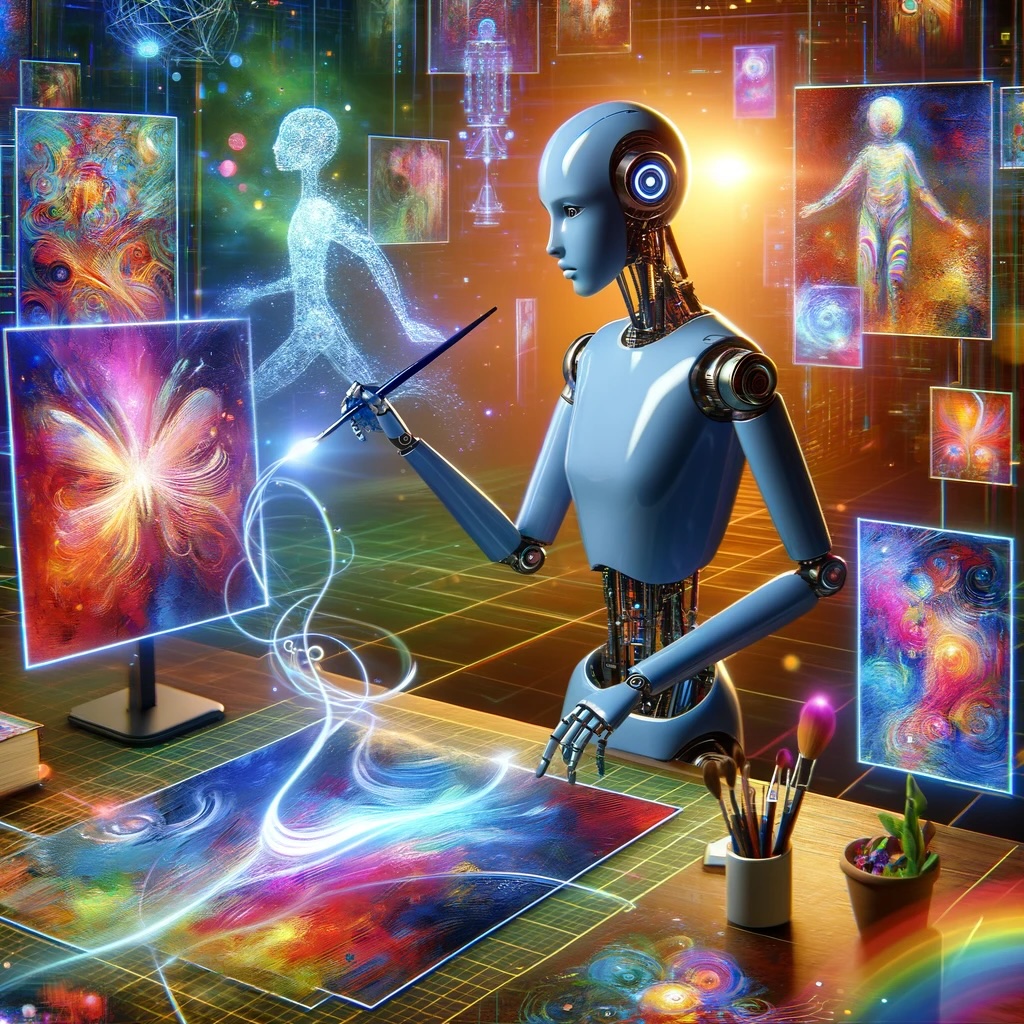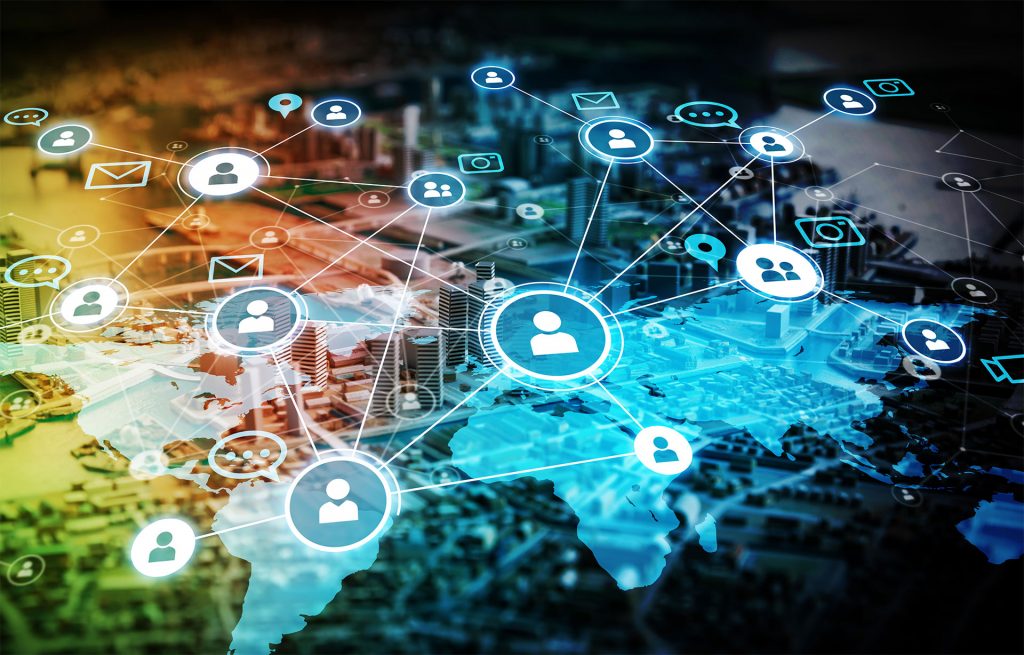The Future of B2B Marketing is here, Powered by AI
Beyond the Hype: Real ROI from Generative AI in B2B Marketing Blog Series
Welcome back to the second blog in our series on harnessing the ROI of generative AI in B2B marketing. In our first blog, we introduced the concept of generative AI and how it differs from traditional AI. Today, we’re going to explore the fascinating evolution of AI in marketing, focusing on the game-changing benefits of generative AI that are taking our strategies to the next level.
From Automation to Creation
Artificial intelligence (AI) has been a catalyst, transforming the B2B marketing landscape for years. AI’s initial foray into B2B marketing focused primarily on automation and data analysis. Chatbots, for example, emerged to provide 24/7 customer support and streamline customer interactions. By leveraging natural language processing (NLP), a branch of AI that enables computers to understand and interpret human language, and machine learning, a subset of AI that allows systems to learn from data and improve their performance without explicit programming, these AI-powered chatbots could understand and respond to customer queries, freeing up human agents to handle more complex issues.
Another early application of AI in B2B marketing was data analysis. AI algorithms could process vast amounts of customer data, identifying patterns and insights that would have been difficult for humans to discern. This allowed B2B marketers to better understand their target audience, personalize their messaging, and optimize their campaigns for maximum impact.
The Shift to Generative AI
While these early uses of AI in B2B marketing were undoubtedly valuable, they pale in comparison to the potential of generative AI. Generative AI, a subset of artificial intelligence, is a technology that can create new content from scratch, such as text, images, and videos, without much human intervention. In simpler terms, it’s like having a machine that can come up with new ideas and create content on its own, without needing a human to tell it what to do. Unlike predictive AI, which analyzes data to make forecasts and recommendations, generative AI is capable of original content creation.
This shift from AI-driven automation to AI-driven content creation has been a game-changer for B2B marketers. With generative AI tools, marketers are empowered to generate high-quality text, images, and videos with minimal human input. This not only saves time and resources but also allows for unprecedented levels of personalization and creativity, putting the power back in the hands of the marketers.
Generative AI: A New Frontier
Generative AI models like GPT-4o and DALL-E can create text and images. This opens a whole new world of possibilities for marketers. For instance, you could use generative AI to automatically generate personalized emails for thousands of leads, each uniquely crafted to appeal to the recipient’s preferences and behavior. Or you could use it to create stunning visuals and graphics without the need for a graphic designer. When using visuals harnessing generative AI be sure to make clear attribution to the program that you used to create the image.
B2B Case Studies and Examples
To truly appreciate the impact of AI in B2B marketing, it’s helpful to look at real-world examples. One early success story was Salesforce’s Einstein, an AI-powered CRM assistant. By analyzing customer data and interactions, Einstein could provide sales reps with personalized recommendations and insights, leading to increased productivity and closed deals.
In the realm of generative AI, B2B companies like Wrike and 2X are already reaping impressive rewards. Wrike, a collaborative work management platform, harnessed AI to triple their gated asset production and boost SEO blog output by a staggering 10x in just 30 days. Meanwhile, marketing agency 2X leveraged AI copywriting tools to slash writing time by 30-50% and create multi-touch email campaigns a whopping 90% faster. These real-world examples demonstrate the tangible impact of AI in B2B marketing, sparking excitement about the possibilities.
Other notable B2B examples include:
- Atlassian using an AI virtual assistant to simplify teamwork and boost productivity.
- eBay building an AI tool that generates product descriptions for 20% of marketplace sellers, 90% of whom accept at least part of the AI-generated content.
- Newegg developing an in-house generative AI that writes review summaries, enhancing the experience for the 20% of shoppers who read reviews and spend 40% more.
Practical Tips for Marketers
If you’re considering integrating generative AI into your marketing strategy, here are some practical tips:
- Start Small: Begin with a pilot project to see how generative AI can benefit your specific needs. This could be as simple as automating email responses or generating social media content.
- Choose the Right Tools: Many generative AI tools are available, each with its own strengths and weaknesses. Do research and choose a tool that aligns with your goals and budget.
- Train Your Team: Ensure your team is comfortable with the new technology. Provide training and resources to help them understand how to use generative AI effectively.
- Measure and Optimize: Track the performance of your generative AI initiatives and be prepared to make adjustments. Use data to continuously improve your strategies and maximize your ROI.
The Future of AI in B2B Marketing
As AI continues to evolve, its role in B2B marketing will only become more prominent. Generative AI has the potential to revolutionize content creation, enabling marketers to produce high-quality, personalized content at scale. However, it’s important to remember that while generative AI has the potential to revolutionize content creation, it does have its limitations. For instance, it may struggle with complex or abstract concepts that require human understanding. Moreover, the use of generative AI in marketing raises ethical questions, such as the potential for misuse or the need for transparency in content creation. Therefore, the most successful B2B marketing campaigns will combine the power of AI with the unique insights and perspectives of human marketers, ensuring a balance between automation and human creativity.
The future of B2B marketing is here, powered by AI. This is a testament to how far we’ve come and how much potential there is for the future. Generative AI is not just a passing trend; it’s a transformative tool that can revolutionize how we approach marketing. By embracing this technology, we can create more personalized, engaging, and efficient marketing strategies that drive actual results. We’d love to hear your thoughts on this topic. How do you see generative AI shaping the future of B2B marketing? Share your insights in the comments below.
As we continue this series, we’ll delve deeper into the practical applications of generative AI in B2B marketing, providing you with the insights and tools you need to stay ahead of the curve. Stay tuned for our next blog to explore how to effectively implement generative AI in your marketing strategy.
Thank you for joining me on this journey. If you have any questions or experiences with generative AI, I’d love to hear about them in the comments below. Your insights and experiences are valuable to our community, so let’s continue to learn and grow together as we navigate the exciting world of generative AI in B2B marketing.
*This blog post is a collaborative effort between my insights and the capabilities of generative AI, blending human experience with advanced technology.
Create an image that creatively depicts and represents OpenAI’s DALL-E



